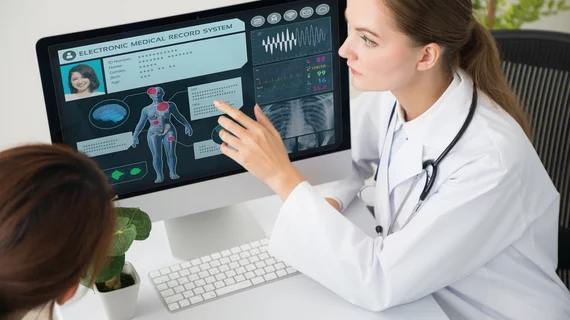Update on radiology report access under new info-blocking rules ‘muddies’ prior clarity, ACR says
The Office of the National Coordinator for Health IT recently updated its frequently asked questions page to address radiology reporting concerns under forthcoming interoperability regulations. But the American College of Radiology says the news only “muddies” prior guidance.
The ONC’s last update came on Jan. 15, in which it said providers are not required by the provision to proactively release reports or other electronic health information (EHI) via online portals to patients who have not requested it. Current practice dictates waiting a specified period of time before releasing documents to properly coordinate care.
In the ONC’s March 19 update, however, it “counterintuitively” claims that requests for information may be “inclusive of inconspicuous electronic queries,” including portal logins, the ACR said Thursday.
This “significantly different standard” for data access requests, the college added, indicates any delay in response—such as standard reporting practice—would constitute information blocking under the 21st Century Cures Act Section 4004.
“In practical effect, this clarification would appear to necessitate proactive access to finalized EHI, even when not yet requested by an individual or entity, to avoid delays of any length in responding to unforeseen queries for EHI,” the ACR said in a March 25 update to members.
Crucially, the April 5 compliance date to meet these regulations is fast approaching. HHS and ONC first finalized rules in March 2020, with federal regulators in October pushing the date back to offer providers flexibility during COVID-19.
“At this writing, a mere two weeks before the April 5 ‘applicability date,’ it is unclear how HHS intends to enforce this controversial clarification,” the radiology advocate noted.
Under the Cures Act’s definition of information blocking, providers must have full knowledge that their data practices are both unreasonable and a likely interference. If unknown, their actions wouldn’t meet the blocking definition regardless of whether info-blocking took place.
HHS said it will make determinations on a case-by-case basis.
The ACR indicated it has been working to caution the HHS about the “unintended” consequences and compliance concerns with its March 19 update.
Read the ONC’s full update on its FAQ page here and the ACR’s info-blocking rules breakdown here.

